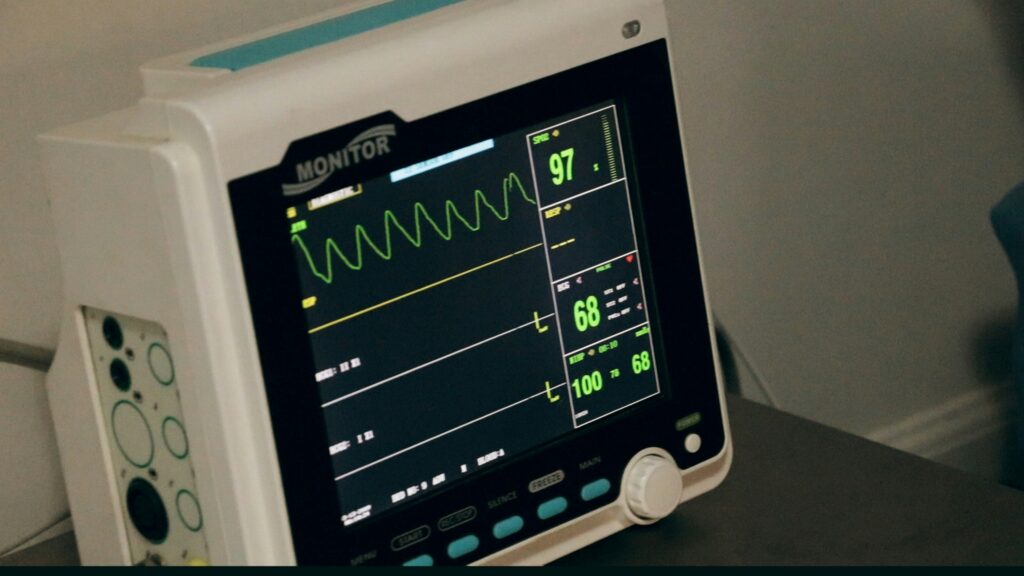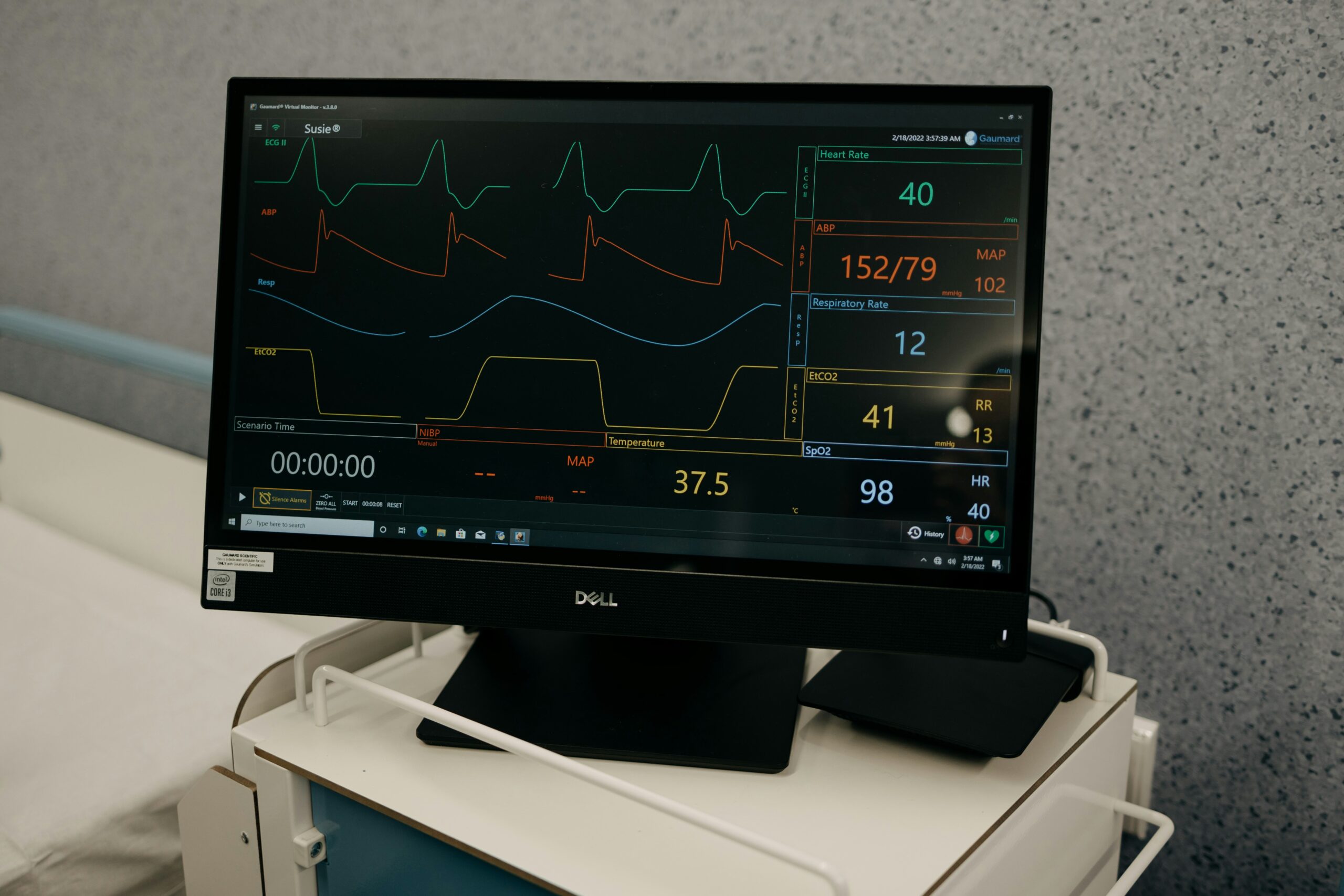
Understanding the Heart-Brain Connection: How Can Anxiety Impacts Heart Rhythm
Have you ever felt your heart race after receiving unexpected news or while waiting for an important event? It’s a sensation many of us know well, often leaving us wondering, “Can anxiety cause irregular heart beat?” To unravel this connection, it’s essential to dive into the intricate relationship between our brain and heart—a bond more profound than one might initially suspect.
The Influence of Stress Hormones: Exploring How Anxiety Triggers Changes in Heart Rhythm
At the core of this relationship are stress hormones, particularly adrenaline and cortisol. These two chemicals are akin to the body’s alarm system, kicking into high gear when anxiety strikes. Picture this: You’re walking through a dark alley, and suddenly, a shadow moves. Instantly, your brain signals an alert, releasing adrenaline to prepare your body to either fight or take flight. This is your body’s natural defense mechanism, and it’s a good thing—most of the time.
However, when anxiety becomes a constant companion, this response can go awry. The persistent release of stress hormones can lead to a phenomenon known as “sinus tachycardia,” where the heart beats faster than usual. This isn’t an irregular heartbeat in the pathological sense, but it is a variation from the norm, driven by anxiety. The heart, under the influence of these hormones, starts to dance to a different rhythm, sometimes leading to palpitations or a fluttery sensation.
Interestingly, this isn’t just a one-way street. Our heart can send signals back to the brain, reinforcing feelings of anxiety. It’s a feedback loop that can, unfortunately, perpetuate the cycle of stress and irregular heart rhythms. When we perceive a threat or feel anxious, our brain sends signals to the heart, causing it to react. The heart, in turn, sends its own signals back to the brain, amplifying our sense of unease.
Understanding this heart-brain connection is vital. It highlights why anxiety can indeed lead to irregular heartbeats and why managing our stress levels is crucial for maintaining heart health. While occasional anxiety is a normal part of life, chronic anxiety can become a significant stressor to the cardiovascular system, leading to more lasting effects on heart rhythm.
By appreciating the interplay between our emotional and physical selves, we can better understand how anxiety influences our heart rhythms. This knowledge paves the way for exploring effective coping mechanisms and seeking appropriate medical advice when needed. So, next time you feel that familiar flutter, remember—there’s a scientific explanation behind that sensation, and it’s something you can address with the right tools and support.
Exploring the Physiology: How Anxiety Can Lead to Heart Palpitations
Have you ever found yourself in a tense situation, only to be distracted by the sudden thumping of your heart? It’s more common than you might think, and it often leads us to question, “Can anxiety cause irregular heartbeats?” To understand this phenomenon, we need to delve into the body’s natural response to stress and how this can manifest physically in our hearts.
Unpacking the Fight or Flight Response: How Anxiety Signals Accelerated Heart Rate
Imagine you’re a gazelle on the African plains, and you catch a whiff of a nearby predator. Your body must decide—do you flee, or do you freeze? This is the classic “fight or flight” response, a survival mechanism that has been honed over millennia. While we may not face predatory animals in our daily lives, modern stressors like work pressures, financial worries, or personal relationships can trigger this same response.
When anxiety strikes, the sympathetic nervous system is activated, releasing a flood of adrenaline. This hormone is like a shot of espresso for your heart, prompting it to beat faster and harder. This accelerated heart rate, or tachycardia, is your body’s way of preparing to respond to a perceived threat. However, when the threat is anxiety rather than a physical danger, this response can feel out of place, even alarming.
This accelerated beating can sometimes lead to sensations known as palpitations—those moments when you’re acutely aware of your heartbeat, which may feel irregular or unusually strong. While palpitations are often harmless, they can be unsettling and lead to further anxiety, creating a cycle that’s hard to break.
In some cases, the stress-induced heart rate changes can mimic or even trigger arrhythmias, which are irregular heartbeats that might require medical attention. It’s worth noting that while anxiety can cause these symptoms, they aren’t the same as having a chronic heart condition. Nevertheless, understanding this connection emphasizes the importance of managing stress and anxiety effectively.
By recognizing how our body’s ancient survival mechanisms are activated by modern-day stressors, we gain insight into why anxiety can lead to irregular heartbeats or palpitations. This understanding encourages us to take steps towards managing anxiety and maintaining heart health. Whether it’s through lifestyle changes, stress management techniques, or seeking medical advice, acknowledging this connection is the first step towards breaking the cycle of anxiety-driven heart symptoms. So, the next time your heart races without a clear cause, remember—this is your body’s way of saying it’s time to address the stress and find your calm.
The Role of Stress Hormones in Irregular Heart Rhythms
Have you ever experienced a moment of intense stress and felt your heart skip a beat or race uncontrollably? It’s a common experience that often leaves us pondering, “Can anxiety cause irregular heartbeats?” The answer lies in the chemistry of stress hormones and their profound influence on our heart rhythms.
Cortisol and Adrenaline: How Stress Hormones Influence Heart Rhythms
Let’s step into the fascinating world of hormones, the body’s chemical messengers. When it comes to anxiety and its impact on the heart, two key players stand out: adrenaline (also known as epinephrine) and cortisol. These stress hormones are released by the adrenal glands, small but mighty organs perched atop your kidneys, and they play a pivotal role in the body’s stress response.
Adrenaline is like the body’s fast-acting energy boost, preparing us for immediate action. When released in response to anxiety, it increases heart rate and blood pressure to ensure that muscles get the oxygen they need to respond to a perceived threat. This is great if you’re about to run a marathon or escape a dangerous situation, but less helpful when you’re simply sitting at your desk worrying about a deadline.
National Library of Medicine: Stress and Arrhythmias
Cortisol, on the other hand, is often dubbed the “stress hormone,” and it works over a longer timeframe. It helps maintain fluid balance and blood pressure, while regulating some body functions that aren’t crucial in the short term, such as digestion and reproduction. However, when cortisol levels remain elevated due to chronic anxiety or stress, it can lead to persistent changes in heart rhythm, potentially contributing to irregular heartbeats.
Studies have shown that elevated levels of these stress hormones can lead to increased heart rate variability and arrhythmias, which are irregular heart rhythms that may feel like your heart is skipping beats or fluttering. While not all arrhythmias are dangerous, chronic exposure to high levels of stress hormones can exacerbate these conditions, particularly in individuals with underlying heart issues (American Heart Association).
Understanding the role of adrenaline and cortisol in your body’s response to stress underscores why anxiety can indeed cause irregular heartbeats. It also highlights the importance of managing stress to maintain heart health. Simple lifestyle changes, such as regular exercise, mindfulness practices, or even just taking a few deep breaths, can help regulate these hormones and reduce their impact on your heart.
By being mindful of how stress hormones affect our hearts, we can take proactive steps to manage anxiety and protect our cardiovascular health. So, the next time you feel your heart racing without a clear reason, remember—it’s a reminder to pause, breathe, and regain control of your stress levels.
Coping Mechanisms: Techniques to Alleviate Anxiety-Driven Heart Palpitations
When anxiety grips us, and our hearts begin to race or flutter, the sensation can be both unsettling and exhausting. This often leads to the pressing question: “Can anxiety cause irregular heartbeats?” The answer, as we’ve explored, is yes. Fortunately, there are effective strategies to help manage this connection and bring your heart back to a steady rhythm.
Physical Activity as Therapy: Exercise Strategies to Reduce Anxiety-Driven Heart Palpitations
Think of your body as a finely tuned instrument. Just as a musician tunes their instrument to ensure it plays harmoniously, we can use physical activity to help tune our bodies and minds, reducing the impact of anxiety on our heart rhythms. Regular exercise is one of the most powerful tools we have to combat anxiety and its effects on the heart.
Why exercise? Well, engaging in regular physical activity helps to lower levels of adrenaline and cortisol, those stress hormones we’ve discussed. It also stimulates the production of endorphins, often referred to as “feel-good” hormones, which help improve mood and reduce stress. But you don’t need to run a marathon to reap these benefits; even moderate activities like brisk walking, cycling, or yoga can be incredibly effective.
Consider starting with a simple 20-minute walk around your neighborhood. As you walk, pay attention to your breathing, letting each step help you release stress. This not only provides your heart with the workout it craves but also gives your mind a break from the thoughts that might be fueling your anxiety. Over time, regular physical activity can help stabilize heart rhythms and reduce the frequency and intensity of palpitations.
Mindful movement practices, such as yoga or tai chi, also offer a dual benefit. They combine physical exercise with mindful breathing, helping to calm both the mind and body. These practices encourage you to focus on the present moment, reducing anxiety and its impact on your heart.
Additionally, consider integrating deep-breathing exercises or meditation into your routine. These techniques help activate the parasympathetic nervous system, which counteracts the stress response, promoting relaxation and reducing heart palpitations.
Ultimately, the key is consistency. Incorporate these activities into your daily routine, and you’ll likely notice a reduction in anxiety-driven heart symptoms. Remember, it’s about finding what works best for you. Whether it’s a daily jog, a yoga session, or simply taking time to breathe deeply, each step towards managing your anxiety is a step towards a healthier heart. So next time your heart starts to race, take it as a cue to move, breathe, and let your body find its natural rhythm once again.
Seeking Support: When to Consult a Healthcare Professional for Anxiety-Related Heart Symptoms
In the whirlwind of daily life, it’s not uncommon for anxiety to occasionally make your heart skip a beat. But when these episodes become frequent or particularly intense, it’s natural to wonder, “Can anxiety cause irregular heartbeats that need professional attention?” Knowing when to seek support is a crucial part of managing your heart health.
Diagnostic Tools and Tests: Understanding How Healthcare Professionals Assess Anxiety-Driven Heart Symptoms
If you’ve been experiencing persistent heart palpitations or irregular heart rhythms, it’s wise to consult a healthcare professional. While anxiety is a common cause of these symptoms, it’s essential to rule out any underlying cardiac issues that might require treatment. Your doctor can help determine whether your heart symptoms are purely anxiety-related or if there’s another factor at play.
Medical professionals have a toolkit of diagnostic tests to assess heart health. An electrocardiogram (ECG) is often the first step, providing a snapshot of your heart’s electrical activity. This test can help identify arrhythmias or other irregularities in heart rhythm that might need further investigation or intervention.
In some cases, your doctor might recommend wearing a Holter monitor—a portable device that records your heart’s activity over 24 to 48 hours. This continuous monitoring can provide a more comprehensive picture of how your heart behaves during your daily activities, particularly if your symptoms are intermittent.
For those experiencing symptoms primarily during physical exertion, an exercise stress test might be conducted. This test evaluates how your heart performs under stress, helping to determine if your irregular heartbeats are linked to physical activity or anxiety.
While it’s natural to feel apprehensive about these tests, remember that they’re designed to provide valuable insights into your heart health. By understanding the root cause of your symptoms, you and your healthcare provider can develop an effective management plan.
Beyond diagnostic tests, healthcare professionals can offer guidance on managing anxiety itself. This might include recommending lifestyle changes, therapy, or medication to help reduce anxiety and its impact on your heart.
Ultimately, seeking professional advice is an empowering step. It not only helps address your immediate concerns but also equips you with the knowledge to manage your anxiety and protect your heart in the long run. So, if you’re experiencing persistent or severe heart symptoms, don’t hesitate to reach out for support. Your heart—and your peace of mind—are worth it.


